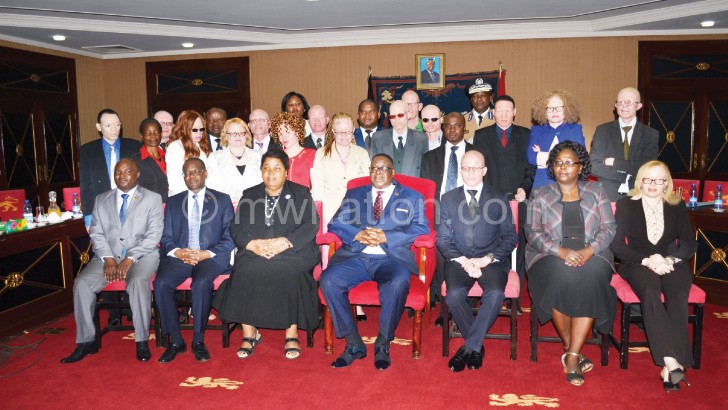UN relocates albino refugees from Malawi
The United Nations (UN) is resettling all albino refugees and their families living in the country following a recent spate of attacks on the country’s albino population that left the world in shock.
Nation on Sunday can reveal that since August this year, the UN through its agency for refugees, UNHCR, has been resettling the country’s albino asylum seekers and refugees alongside members of their families through measures designed to fast-track their departure from the country.

A total of 11 families will be relocated, but so far two families have been resettled to United States and Canada as the agency is working to fast-track resettlement of the rest.
A special UN envoy for people with albinism visited the country at the height of the abductions and killings which saw some 18 attacks, including murders, mutilation of body parts and tampering of graveyards of people with albinism, among others, since 2015.
Then special envoy Ikponwosa Ero condemned Malawi government for failure to stop the attacks, calling the government response “zero protection”, but months on, with the attacks finally declining in frequency of recorded cases, the UN is still leaving nothing to chance.
UNHCR Resident Coordinator Monique Okonko confirmed in an interview on Thursday that the agency has been working with the governments of Canada and United States to speed up the resettlement of refugees with albinism as they were more vulnerable. She confirmed that the primary reason the families of albino refugees were being repatriated were concerns over their security, but she refused to say whether the move is a sign that Malawi government has failed to protect them in the country.

“Malawi has really faced a number of challenges with the human rights of people with albinism. We don’t have a large number of albinos among the refugee population; we are looking at around 10 to 11 people. So, what we have done is to come up with an agreement with countries such as the US and Canada to fast-track the resettlement applications of these albinos and their families,” said Okonko.
She said the recent attacks left ‘vulnerable’ refugees with albinism as “double victims” as they also grapple with issues of lack of proper diet, absent special skin lotions, among others, inside dilapidated campsites.
She, however, said the process of approving the resettlement was rigorous and that only those with proven refugee status were being considered. According to the agency’s country representative, the selection of county for resettlement was based on family ties.
Information Minister and Government Spokesperson Malison Ndau yesterday said while he was ignorant of the repatriation exercise, government has done a lot to address security concerns of people with albinism, not just refugees.
Ndau, who said he was yet to receive official information on the matter, rejected assertion that the move to resettle albino refugees was an indictment of failure by government to guarantee their security, saying the issue of albinos was more complex.
“The issue of the attacks is a complex and delicate one. The difficult part is that albinos do not stay in one place for government to simply deploy security agents and assure them protection. But we genuinely believe our work has paid off. The attacks have decreased and more albinos feel secure,” said Ndau.
Billy Mayaya, a human rights activist, yesterday said the move by the UN should serve as a wake-up call that Malawi Government was failing in its duty to guarantee rights of not only the citizenry, but others living within its borders.
“Government needs to strengthen its resolve in defending the rights of all people, including people with albinism. The UN action points to the fact that not enough is being done to assure them that protection is guaranteed. That is shameful to say the least,” said Mayaya.
At the height of the attacks, the UN warned that Malawi’s 10 000 albino population faces extinction due to attacks which killed over 18 people since last year.
Since then, there have been changes in law for those caught with human body parts. That was after several campaigns by police, civil society and other authorities to raise awareness and create a coalition around the country’s albinos.





